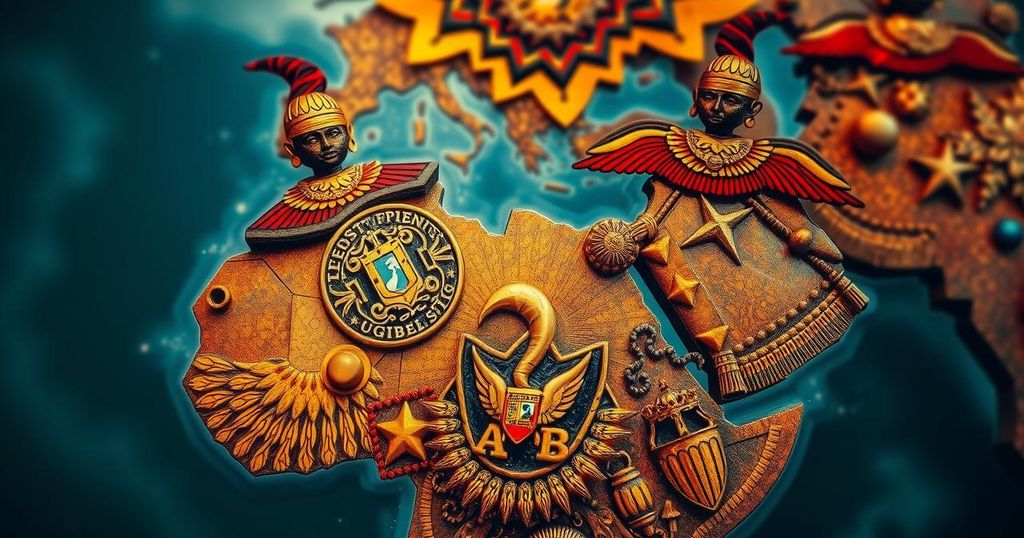Tensions in the Horn of Africa are escalating as Egypt, Somalia, and Eritrea form an anti-Ethiopian alliance amid Ethiopia’s dealings with Somaliland. This coalition, focused on collective security, emerges against a backdrop of Ethiopia’s civil war and a worsening humanitarian crisis. The potential for proxy conflicts and increased instability poses serious risks for regional security, drawing attention from global powers.
Recent developments in the Horn of Africa have highlighted rising tensions as Egypt, Somalia, and Eritrea explore the formation of a collective security alliance against Ethiopia. This meeting, which took place on October 10, 2024, in Asmara, Eritrea, marks a significant diplomatic shift that raises regional stability concerns. In recent months, Egypt has established military cooperation agreements with Somalia and is poised to do the same with Eritrea, uniting the three nations in a collective stance against Ethiopia. This response comes amidst the ongoing Ethiopian civil war, which has resulted in the loss of approximately 600,000 lives over the past two years and increasing turmoil in neighboring Sudan. The new anti-Ethiopian alliance emerges in reaction to Ethiopia’s controversial agreement with Somaliland, a breakaway region of Somalia. This deal has empowered Ethiopia to gain direct access to the Red Sea via the port of Berbera, which Somalia views as a breach of its territorial sovereignty. This strategic move by Ethiopia, which gained some international recognition for Somaliland, has exacerbated existing tensions, particularly between Somalia, Egypt, and Eritrea. Egypt perceives Ethiopia’s Grand Ethiopian Renaissance Dam as a significant threat to its water resources, prompting Cairo to seek alliances that would strengthen its position against Ethiopia. This shift in regional alliances could lead to heightened military tensions and economic sanctions, reminiscent of Cold War-style proxy conflicts. Additionally, internal instability in Somalia, marked by the resurgence of the Al Shabab group, complicates the situation further. The group has strengthened its capabilities and is reportedly collaborating with Houthi militants, complicating the security landscape in the region and limiting the Somali government’s control. Eritrea’s involvement is also noteworthy; facing international sanctions and regional isolation, its willingness to ally with Ethiopia highlights its changing priorities. This coalition may lead to destabilizing consequences, particularly for Eritrea, if Ethiopia decides to withdraw from existing peace agreements. The unfolding situation in the Horn of Africa warrants global attention due to its potential implications for regional security and international trade routes. Diplomatic tensions could escalate into open conflict, prompting international stakeholders to rethink their engagement strategies. In conclusion, while the specifics of the emerging alliance continue to unfold, the dynamics indicate a perilous road ahead for the Horn of Africa.
The Horn of Africa has long been a focal point of geopolitical interests due to its strategic position, significant natural resources, and complex sociopolitical dynamics. Growing tensions between various nations in the region have been exacerbated by ongoing wars and humanitarian crises. The conflict in Ethiopia, rooted in ethnic and political disputes, has become a catalyst for broader regional instability, impacting neighboring countries like Sudan, Somalia, Egypt, and Eritrea. Moreover, the region’s fragile governance structures and the rise of militant groups add layers of complexity that necessitate careful international observation and intervention. The potential formation of a collective security alliance among Egypt, Somalia, and Eritrea represents a significant shift in regional dynamics and raises the stakes for ongoing conflicts in the area.
The emerging anti-Ethiopian alliance among Egypt, Somalia, and Eritrea signifies a critical turning point for the Horn of Africa, intensifying geopolitical rivalries and complicating the already volatile situation. With Ethiopia’s controversial agreement with Somaliland acting as a flashpoint, the potential for escalating conflict looms large. Coupled with the resurgence of militant groups in Somalia and Eritrea’s shifting alliances, the region stands on the brink of significant instability. It is imperative for the global community to engage and reassess its strategies concerning the Horn of Africa to prevent further degradation of peace and security in this pivotal area.
Original Source: www.orfonline.org







